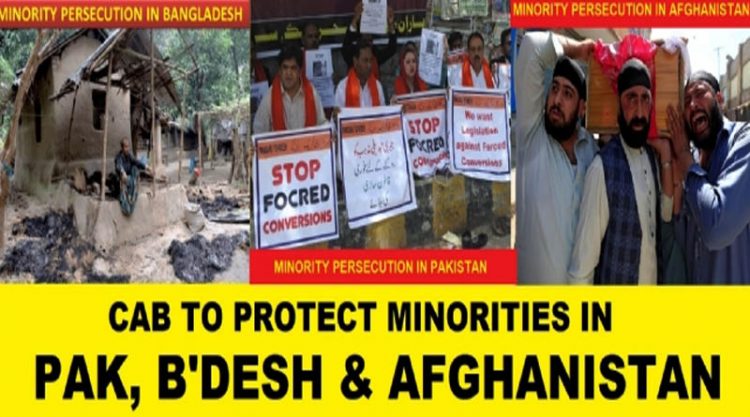Dr. Jnanendra Barman
At midnight when the world was sleeping the line was drawn dividing brothers and sisters. Hindus, Sikhs, Christians, Jains, Parsis, Buddhists who did not want to be citizens of an Islamic theocratic state had little choice once the political boundary was drawn. Many did not want to leave their birthplace, so decided to stay there in Pakistan.
Rise of fundamentalist force led to religious persecution of the minority communities. Hindus who constituted 30% of East Pakistan’s (now Bangladesh) population in 1947 declined to 9.7% in 2011. Kushtia Islamic University professor Dr. Rashid Askari observes “This steep decline has mostly resulted from the overall effect of the persecution inflicted on the Hindus over the decades…the people who once constituted one-third of the total population, have been reduced almost to a vanishing breed always threatened with extinction”.
Hindus were the worst hit in 1971. US Senator Edward Kennedy’s report submitted to the Senate committee testifies to the violence committed against the Hindus: “Hardest hit have been members of the Hindu community who have been robbed of their lands and shops, systematically slaughtered, and in some places, painted with yellow patches marked “H”. All of this has been officially sanctioned, ordered and implemented under martial law from Islamabad”.
Healing the wounds left by colonial history and giving shelter and citizenship to the persecuted minorities in Islamic theocratic Pakistan was a national commitment of Indian leadership which remains unfulfilled. Congress Working Committee adopted a resolution on November 25, 1947 declaring that “the Congress is bound to afford full protection to all those non-Muslim from Pakistan who has crossed the border and come over to India or many do so to save their life and honour.”
Mahatma Gandhi on September 26, 1947 declared in a prayer meeting that ‘the Hindus and the Sikhs staying in Pakistan, can come to India by all means, if, they do not wish to continue there. In that case, it is the duty of the Indian Government to give them jobs and make their lives comfortable.” Congress was committed to these people until recently.
Manmohan Singh as leader of the Opposition in the Rajya Sabha maintained on December 18th, 2003 that the minorities in countries like Bangladesh have faced persecution and it is our moral obligation, that, if circumstances force people, these unfortunate people, to seek refuge in our country, approach to granting citizenship to these unfortunate persons should be more liberal.
The Citizenship Amendment Bill, 2019 proposes to give citizenship to those persecuted people from Pakistan, Afghanistan, and Bangladesh who have been staying in India for more than 6 years till 31st Dec 2014.
Today, Congress and other so-called liberals are opposing the move. Some ethnic groups from Assam are also opposing on the ground that it may pose a threat to the linguistic identity of the Assamese once Bengali Hindus pour into the state. But the census report reveals that the Hindu population in Assam declined from 72.5% in 1971 to 61.5% in 2011; It clearly indicates there was no Hindu Bengali migration during the period which otherwise should have increased.
Of those who came prior to 1971, some six lakhs Bengali Hindus’ names have been left out of the NRC because the Supreme court rejected the migration certificate as a valid document to claim one’s citizenship. The migration certificate was issued by the central Govt in 1956 who came to India in the aftermath of partition. On the other hand, Muslim population witnessed a sharp rise from 24% in 1971 to 34% in 2011. Vote bank politics has added complexity to the issue now which was otherwise a consensus.
(Author is HoD, Dept of English, Mahapurusha Srimanta Sankaradeva Viswavidyalaya, Guwahati)




















Discussion about this post